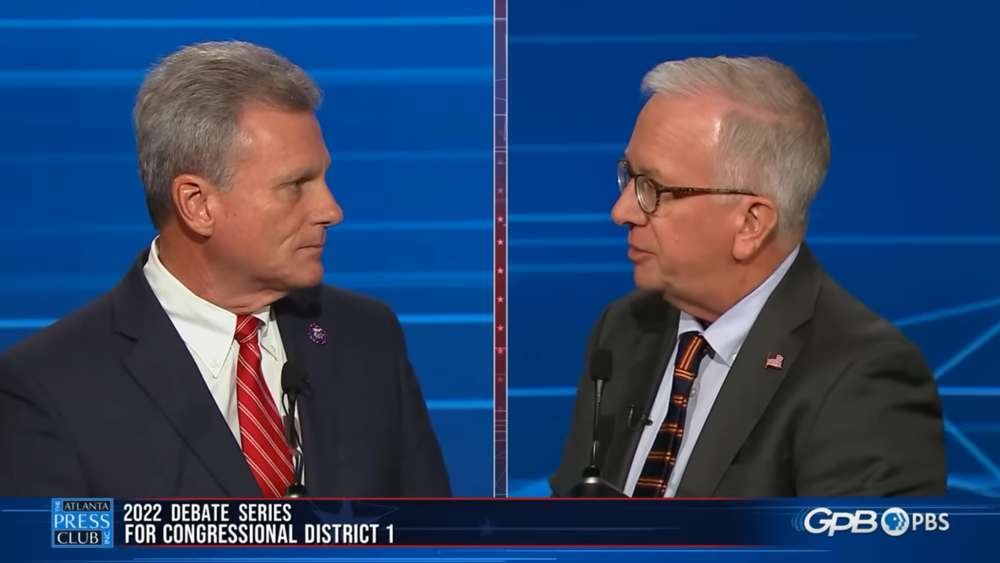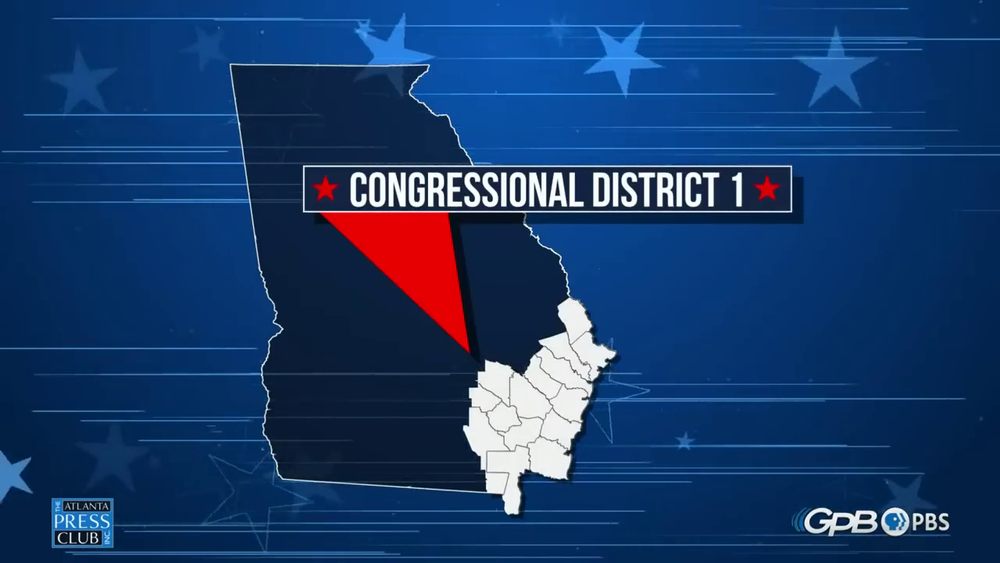
Caption
Incumbent Republican Rep. Buddy Carter (left) and Democratic challenger Wade Herring participate in the Atlanta Press Club's Loudermilk-Young Debate Series at the studios of Georgia Public Broadcasting in Atlanta on Oct. 18, 2022.
Credit: Georgia Public Broadcasting


